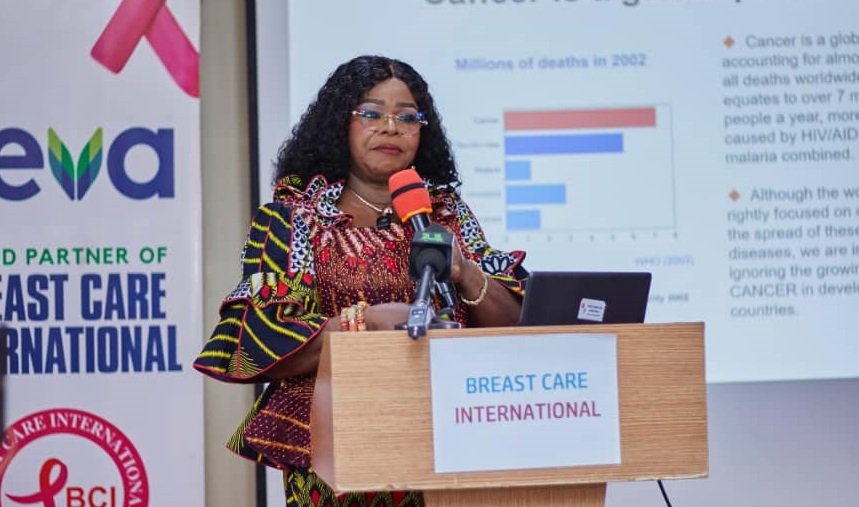News
Incorporate oncology education in nursing training – Dr Wiafe Addai

Dr Beatrice Wiafe Addai, Chief Executive Officer (CEO) of Breast Care International, has emphasised the pressing need to incorporate oncology education into standard nursing training to improve breast cancer care across Ghana.
“We are advocating a change of the curriculum of the nursing training schools in the country so that many oncology concerns can be added to their training schedules,” Dr Wiafe Addai stated.
She made the call during the opening of a two-day basic oncology training workshop at the Peace and Love Hospital in Kumasi for journalists, selected from the Eastern Region.
She emphasised a critical gap in Ghana’s healthcare education system – the absence of specialised oncology nursing training schools in the country.
“There are no oncology nursing training schools in the country,” Dr Wiafe Addai pointed out, “underscoring the significance of the curriculum reform,” she advocates.
She further explained that the curriculum reform would be essential alongside her organisation’s efforts to train healthcare professionals, particularly in underserved areas.
Dr Wiafe Addai highlighted that healthcare professionals in rural areas often served as the first point of contact for patients, making their education crucial for early detection and proper care.
One of the most disturbing revelations from the training was the social impact of breast cancer on patients’ lives as Dr Wiafe Addai noted that lack of proper counseling has resulted in many men divorcing their wives after diagnosis.
“The psychological impact of breast cancer extends far beyond the physical symptoms,” she elaborated. “Without adequate counseling for both patients and their families, women face abandonment at a time when they need support the most.”
Moreover, Dr Wiafe Addai stressed the importance of celebrating and highlighting cancer survivors. “Survivorship is most important as the more we have survivors, the more we see reduction of fear and stigma of the disease,” she emphasised.
She noted the fact that breast cancer does not start with pains was the reason many women live with the disease for a longer time before seeking for help.
The leading breast cancer advocate emphasised the need to dispel superstitious beliefs surrounding the disease. “It is not witchcraft that causes breast cancer,” she stated firmly, addressing a belief that still persists in some communities and often delays proper medical treatment.
She again highlighted the importance of involving younger generations in awareness campaigns. “It is very important to involve the youth in awareness creation of the disease,” noted Dr Wiafe Addai.
She also urged the public to know their family history regarding breast cancer, which can help with preventive measures.
Dr Kwabena Opoku-Adusei, former President of Ghana Medical Association, who chaired the function, encouraged journalists to use their platforms to spread accurate information about breast cancer, help reduce stigma, and promote early detection practices that could save countless lives.
Nana Osei Amankwa III, chief of Oduom, also asked journalists to eschew fake news because they are the mouthpiece of the people.
Ashanti and Eastern Regional Chairmen of the Ghana Journalists Association, Kingsley E. Hope and Maxwell Kudakor, used the occasion to urge journalists to be passionate about health related stories to combat misconceptions.
From Kingsley E. Hope, Kumasi